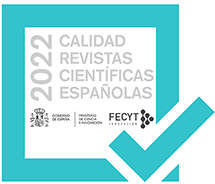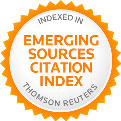Motor Skill Learning in Groups: Some Proposals for Applying Implicit Learning and Self-Controlled Feedback. [Aprendizaje de habilidades/destrezas motoras en grupos: Propuestas para la Aplicación de Aprendizaje Implícito, autocontrolado y retroalimentado].
Resumen
Contrary to researchers’ current focus on individual motor skill learning, in institutional settings motor skill learning is often taught in groups. In settings such as physical education and sports, there is not only the interaction between teacher and learner (as in research), but also the many interactions between the learners in the group. In this paper, we discuss the pitfalls of applying research findings without taking into account the different dynamics that the interactions between group members bring about. To this end, we especially discuss implicit motor learning and self-controlled feedback, as these have recently be hailed as being particularly effective for increasing motor skill and self-efficacy. Proposals are provided to adopt these methods for motor skill learning in groups. This is not only relevant for practitioners in physical education and sports, but also establishes an agenda for research.
Resumen
A diferencia del enfoque actual de los investigadores sobre aprendizaje de habilidades motrices en contextos institucionales tales como la educación físca y los deportes, el aprendizaje motor se enseña frecuentemente en grupos. En estos contextos no solo hay interacción entre el profesor y el alumno (como en el caso de la investigación), sino que también se producen numerosas interacciones entre los alumnos en el seno del grupo. En este artículo se discuten las dificultades en la aplicación de los resultados de estas investigaciones cuando no se tienen en cuenta las diferentes dinámicas que surgen entre los miembros del grupo. Con este fin, expresamente centramos la atención en el aprendizaje motor implícito y el feedback autorregulado, ya que éste ha sido destacado por ser especialmente eficaz para el aumento de las habilidad motriz y la percepción de autoeficacia. Se ofrecen propuestas para la adopción de estos métodos para el aprendizaje de habilidades motrices en grupo. Esto no solo es relevante para los profesionales de la educación física y el deporte, sino que sirve para establecer una nueva línea de investigación.
http://dx.doi.org/10.5232/ricyde2015.03903
---------------------------------------------------------------------------
References/referencias
Aiken, C. A.; Fairbrother, J. T.; Post, P. G (2012). The effects of self-controlled video feedback on the learning of a basketball set shot. Frontiers in psychology, 3, 338.
http://dx.doi.org/10.3389/fpsyg.2012.00338
Anderson, J. R. (1982). Acquisition of cognitive skill. Psychological Review, 89, 369–406.
http://dx.doi.org/10.1037/0033-295X.89.4.369
Ashford, D.; Davids, K., & Bennett, S.J. (2009). Developmental effects influencing observational modelling: A meta-analysis. Journal of Sports Sciences, 25, 547-558.
http://dx.doi.org/10.1080/02640410600947025
Berry, D.C., & Broadbent, D.E. (1988). Interactive tasks and the implicit explicit distinction. British Journal of Psychology, 79, 251–272.
http://dx.doi.org/10.1111/j.2044-8295.1988.tb02286.x
Brouwer, B.; Houthoff, D.; Massink, M.; Mooij, C.; Mossel van, G.; Swinkels, E. (2012). Basisdocument: bewegingsonderwijs voor de onderbouw van het voortgezet onderwijs. Zeist: Jan Luiting Fonds.
Buszard, T.; Farrow, D.; Reid, M., & Masters, R.S.W. (2014). Scaling sporting equipment for children promotes implicit processes during performance. Consciousness & Cognition (in press).
Bunker, D., & Thorpe, R. (1982). A model for the teaching of games in secondary schools. Bulletin of Physical Education 18, 5–8.
Capio, C.M.; Poolton, J.M.; Sit, C.H.P.; Eguia, K.F., & Masters, R.S.W. (2012) Reduction of errors during practice facilitates fundamental movement skill learning in children with intellectual disabilities. Journal of Intellectual Disability Research, 57, 295-305.
http://dx.doi.org/10.1111/j.1365-2788.2012.01535.x
Capio, C.M.; Poolton, J.M.; Sit, C.H.P.; Holmstrom, M., & Masters, R.S.W. (2013). Reducing errors benefits the field-based learning of a fundamental movement skill in children. Scandinavian Journal of Medicine & Science in Sport, 23, 181-188.
http://dx.doi.org/10.1111/j.1600-0838.2011.01368.x
Chiviacowski, S., & Wulf, G. (2002). Self-controlled feedback: does it enhance learning because performers get feedback when they need it? Research Quarterly for Exercise and Sport, 73, 408-415.
http://dx.doi.org/10.1080/02701367.2002.10609040
Chiviacowski, S., Wulf, G. (2007). Feedback after good trials enhances learning. Research Quarterly for Exercise and Sport, 78, 40-47.
http://dx.doi.org/10.1080/02701367.2007.10599402
Chiviacowski, S.; Wulf, G.; Laroque de Medeiros, F.; Kaefer, A., & Tani, G. (2008). Learning benefits of self-controlled knowledge of results in 10-year-old children. Research Quarterly for Exercise and Sport, 79, 405-410.
http://dx.doi.org/10.1080/02701367.2008.10599505
Chiviacowski, S.; Wulf, G.; Laroque de Medeiros, F.; Kaefer, A., & Wally R. (2008). Self-controlled feedback in 10-year-old children: higher feedback frequencies enhance learning. Research Quarterly for Exercise and Sport, 79, 122-127.
Davids, K.; Button, C., & Bennett, S. (2008). Dynamics of skill acquisition in sport: Constraints-led approach. Champaign, IL: Human Kinetics.
Fairbrother, J.T.; Laughlin, D.D., & Nguyen, T.V. (2012). Self-controlled feedback facilitates motor learning in both high and low activity individuals. Frontiers in Psychology, 3, 323.
http://dx.doi.org/10.3389/fpsyg.2012.00323
Fitts, P.M., & Posner, M.I. (1967). Human Performance. Belmont, CA: Brooks/Cole.
Gathercole, S. E., & Alloway, T. P. (2008). Working memory and learning: A practical guide. Sage Press.
Hardy, L.; Mullen, R., & Jones, G. (1996). Knowledge and conscious control of motor actions under stress. British Journal of Psychology, 87, 621-636.
http://dx.doi.org/10.1111/j.2044-8295.1996.tb02612.x
Harter, S. (1978) Effectance motivation reconsidered: Toward a developmental model. Human Development, 21, 34–64.
http://dx.doi.org/10.1159/000271574
Hellison, D.R. (1984). Goals and strategies for teaching physical education. Champaign, IL: Human Kinetics Publishers.
Hodges, N.J., & Ste-Marie, D. (2013). Observation as an instructional method. In: D. Farrow, J. Baker, & C. MacMahon, (Eds.), Developing sport expertise: researchers and coaches put theory into practice 2nd Edition (pp. 115-128). New York, NY: Routledge
Janascek, K., & Nemeth, D (2013). Implicit sequence learning and working memory: Correlated or complicated? Cortex, 49, 2001-2006.
http://dx.doi.org/10.1016/j.cortex.2013.02.012
Janelle, C.M.; Barba, D.B.; Frehlich, S.G.; Tennant, L.K., & Cauraugh, J.H. (1997). Maximizing performance feedback effectiveness through videotape replay and a self-controlled learning environment. Research Quarterly for Exercise and Sport, 68, 269-279.
http://dx.doi.org/10.1080/02701367.1997.10608008
Jarodzka, H.; Scheiter, K.; Gerjets, P., & van Gog, T. (2010). In the eyes of the beholder: How experts and novices interpret dynamic stimuli. Learning and Instruction, 20, 146-154.
http://dx.doi.org/10.1016/j.learninstruc.2009.02.019
Jarodzka, H.; van Gog, T.; Dorr, M. Scheiter, K., & Gerjets, P. (2013). Learning to see: Guiding students' attention via a Model's eye movements fosters. Learning and Instruction, 25, 62-70.
http://dx.doi.org/10.1016/j.learninstruc.2012.11.004
Kal, E.C.; van der Kamp, J., & Houdijk, H. (2013). External attentional focus enhances movement automatization: A comprehensive test of the constrained action hypothesis. Human Movement Sciences, 32, 527-539.
http://dx.doi.org/10.1016/j.humov.2013.04.001
Koekoek, J.; Dokman, I., & Wallinga, W. (2011). Sportspelen. Den Haag: Boom Lemma Uitgevers.
Kleynen, M.; Braun, S.M.; Bleijlevens, M.H.; Lexis, M.A.; Rasquin, S.M.; Halfens, J.; Wilson, M.R.; Beurskens, A.J., & Masters, R.S.W. (2014). Using a Delphi technique to seek consensus regarding definitions, descriptions and classification of terms related to implicit and explicit forms of motor learning. PLoS ONE, 9(6), e100227.
http://dx.doi.org/10.1371/journal.pone.0100227
Koekoek, J., & Knoppers, A. (2013). The role of perceptions of friendships and peers in learning skills in physical education. Physical Education and Sport Pedagogy (in press).
http://dx.doi.org/10.1080/17408989.2013.837432
Lam, W.K.; Maxwell, J.P., & Masters, R.S.W. (2009). Analogy versus explicit learning of a modified basketball shooting task: Performance and kinematic outcomes. Journal of Sports Sciences, 27, 179-191.
http://dx.doi.org/10.1080/02640410802448764
Liao C.M., & Masters, R.S.W. (2001). Analogy learning: A means to implicit motor learning. Journal of Sports Sciences, 19, 307-319.
http://dx.doi.org/10.1080/02640410152006081
MacPhail, A.; Kirk, D., & Griffin. L. (2008). Throwing and catching as relational skills in game play: Situated learning in a modified game unit. Journal of Teaching in Physical Education, 27, 100–115.
Masters, R.S.W. (1992). Knowledge, knerves and know-how: The role of explicit versus implicit knowledge in the breakdown of a complex motor skill under pressure. British Journal of Psychology, 83, 343-358.
http://dx.doi.org/10.1111/j.2044-8295.1992.tb02446.x
Masters, R.S.W.; Lo, C.Y.; Maxwell, J.P., & Patil, N.G. (2008). Implicit motor learning in surgery: Implications for multi-tasking. Surgery, 143, 140-145.
http://dx.doi.org/10.1016/j.surg.2007.06.018
Masters, R.S.W., & Poolton, J. (2012). Advances in implicit motor learning. In N.J. Hodges & A.M. Williams (Eds.), Skill Acquisition in Sport: Research, Theory and Practice (2nd ed.) (pp. 59-75). London: Routledge.
Masters, R.S.W.; Poolton, J.M., & Maxwell, J.P. (2008). Stable implicit motor processes despite aerobic locomotor fatigue. Consciousness and Cognition, 17, 335-338.
http://dx.doi.org/10.1016/j.concog.2007.03.009
Masters, R.S.W.; van der Kamp, J., & Capio, C. (2013). Implicit motor learning by children. In J. Côté & R. Lidor (Eds.), Conditions of children's talent development in sport (pp. 21-40). West Virginia: Fitness Information Technology.
Maxwell J.P.; Masters, R.S.W.; Kerr, E., & Weedon, E. (2001) The implicit benefit of learning without errors. The Quarterly Journal of Experimental Psychology Section A, 54, 1049-1068.
http://dx.doi.org/10.1080/713756014
Mitchell, S.A.; Griffin, L.L., & Oslin, J.L. (1995). The effects of two instructional approaches on game performance. Pedagogy in Practice: Teaching and Coaching in Physical Education and Sports 1, 36–48.
Mullen, R.; Hardy, L., & Oldham, A. (2007). Implicit and explicit control of motor actions: revisiting some early evidence. British Journal of Psychology, 98, 141-156.
http://dx.doi.org/10.1348/000712606X114336
Poolton, J.M.; Masters, R.S.W., & Maxwell, J.P. (2007). Passing thoughts on the evolutionary stability of implicit motor behaviour: Performance retention under physiological fatigue. Consciousness and Cognition, 16, 456-468.
http://dx.doi.org/10.1016/j.concog.2006.06.008
Poolton, J.M.; Maxwell, J.P.; Masters, R.S.W., & Raab, M. (2006). Benefits of an external focus of attention: Common coding or conscious processing? Journal of Sport Sciences, 24, 89-99.
http://dx.doi.org/10.1080/02640410500130854
Reber, A.S. (1992). An evolutionary context for the cognitive unconscious. Philosophical Psychology, 5, 33-51.
http://dx.doi.org/10.1080/09515089208573042
Renshaw, I.; Chow, J.Y.; Davids, K., & Hammond, J. (2010). A constraints-led perspective to understanding skill acquisition and game play: A basis for integration of motor learning theory and physical education praxis? Physical Education and Sport Pedagogy, 15, 117–137.
http://dx.doi.org/10.1080/17408980902791586
Ryu, D.; Kim, S.; Abernethy, B., & Mann, D.L. (2013). Guiding attention aids the acquisition of anticipatory skill in novice soccer goalkeepers. Research Quarterly for Exercise & Sport, 84, 252-262.
http://dx.doi.org/10.1080/02701367.2013.784843
Salmoni, A.W.; Schmidt, R.A., & Walter, C.B. (1984). Knowledge of results and motor learning: A review and critical reappraisal. Psychological Bulletin, 95, 355-386.
http://dx.doi.org/10.1037/0033-2909.95.3.355
Saemi, E.; Porter, J.M.; Ghotbi-Varzaneh, A.; Zarghami, M., & Maleki, F. (2012). Knowledge of results after relatively good trials enhances self-efficacy and motor learning. Psychology of Sport and Exercise, 13, 378-382.
http://dx.doi.org/10.1016/j.psychsport.2011.12.008
Savelsbergh, G.J.P.; Gastel, P.J. van, & Kampen, P.M. van (2010). Anticipation of penalty kick direction can be improved by directing attention through perceptual learning. International Journal of Sport Psychology, 41, 24-41.
Ste-Marie, D.M.; Law, B.; Rymal, A.M.; O, J., & Hall, C., & McCullagh, P. (2012). Observation interventions for motor skill learning and performance: an applied model for the use of observation. International Review of Sport and Exercise Psychology, 1-21.
Ste-Marie, D.M.; Vertes, K.A.; Law, B., & Rymal, A.M (2013). Learner-controlled self-observation is advantageous for motor skill acquisition. Frontiers in Psychology, 3, 556.
http://dx.doi.org/10.3389/fpsyg.2012.00556
Steenbergen, B.; van der Kamp, J.; Verneau, M.; Jongbloed-Pereboom, M., & Masters, R.S.W. (2010). Implicit and explicit learning: Applications from basic research to sports for individuals with impaired movement dynamics. Disability and Rehabilitation, 32, 1509-1516.
http://dx.doi.org/10.3109/09638288.2010.497035
Tan, C.W.K.; Chow, J.Y., & Davids, K. (2012). 'How does TGfU work?': Examining the relationship between learning design in TGfU and a nonlinear pedagogy. Physical Education and Sport Pedagogy, 17, 331-348.
http://dx.doi.org/10.1080/17408989.2011.582486
van Abswoude, F.; Santos-Vieira, B.; van der Kamp, J., & Steenbergen, B. (2014). The influence of errors during practice on motor learning in young individuals with Cerebral Palsy (submitted).
Vande Broek, G.; Boen, F.; Claessens, M.; Feys, J., & Ceuz, T. (2011). Comparison of three instructional approaches to enhance tactical knowledge in volleyball among university students. Journal of Teaching in Physical Education, 30, 375-392
Wulf, G.; Höß, M., & Prinz, W. (1998). Instructions for motor learning: differential effects of internal versus external focus of attention. Journal of Motor Behavior, 30, 169-179.
http://dx.doi.org/10.1080/00222899809601334
Palabras clave/key words
------------------------ 0 -------------------------
RICYDE. Revista Internacional de Ciencias del Deporte
![]()

Publisher: Ramón Cantó Alcaraz
ISSN:1885-3137 - Periodicidad Trimestral / Quarterly

